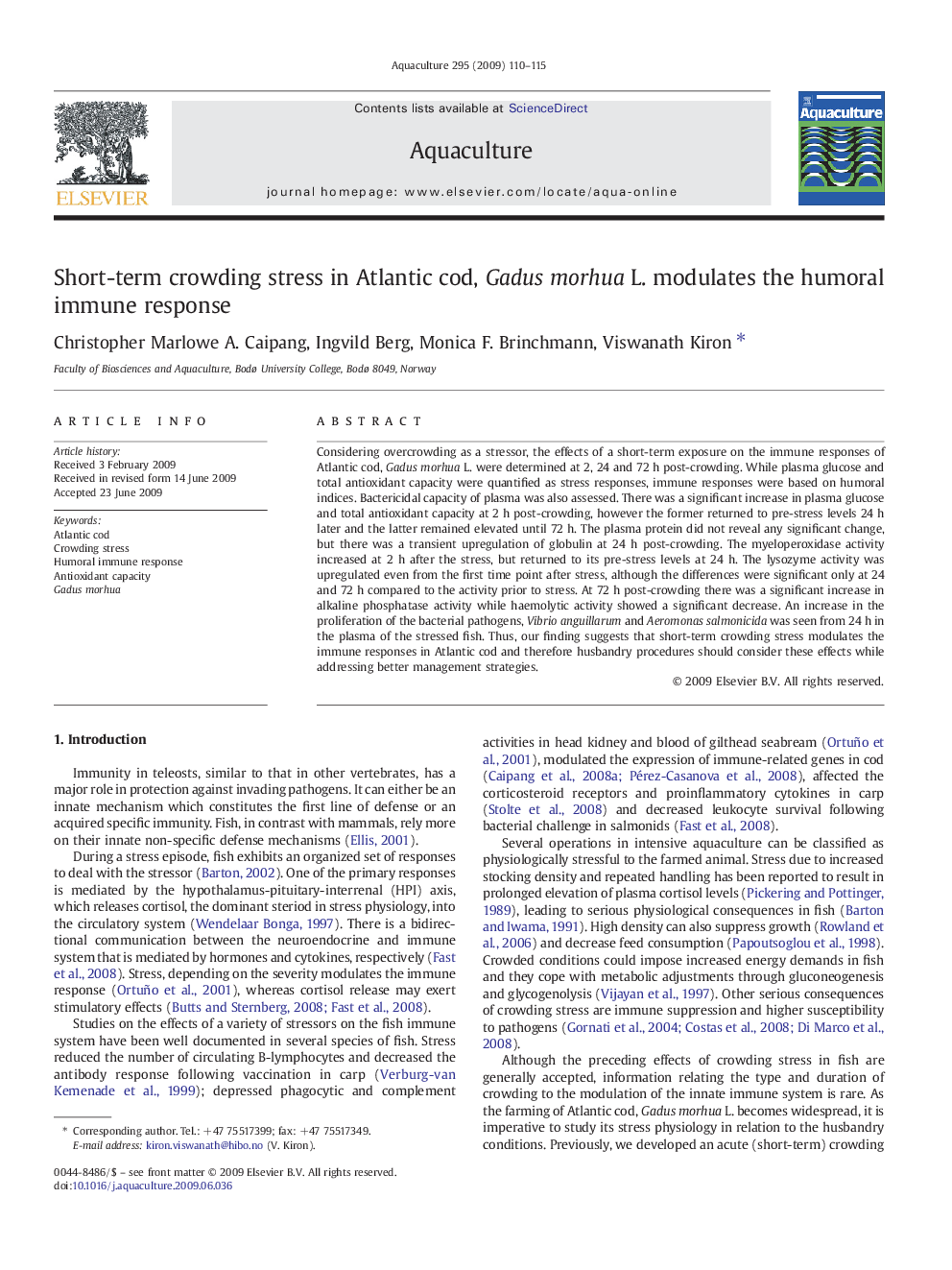| Article ID | Journal | Published Year | Pages | File Type |
|---|---|---|---|---|
| 2424082 | Aquaculture | 2009 | 6 Pages |
Considering overcrowding as a stressor, the effects of a short-term exposure on the immune responses of Atlantic cod, Gadus morhua L. were determined at 2, 24 and 72 h post-crowding. While plasma glucose and total antioxidant capacity were quantified as stress responses, immune responses were based on humoral indices. Bactericidal capacity of plasma was also assessed. There was a significant increase in plasma glucose and total antioxidant capacity at 2 h post-crowding, however the former returned to pre-stress levels 24 h later and the latter remained elevated until 72 h. The plasma protein did not reveal any significant change, but there was a transient upregulation of globulin at 24 h post-crowding. The myeloperoxidase activity increased at 2 h after the stress, but returned to its pre-stress levels at 24 h. The lysozyme activity was upregulated even from the first time point after stress, although the differences were significant only at 24 and 72 h compared to the activity prior to stress. At 72 h post-crowding there was a significant increase in alkaline phosphatase activity while haemolytic activity showed a significant decrease. An increase in the proliferation of the bacterial pathogens, Vibrio anguillarum and Aeromonas salmonicida was seen from 24 h in the plasma of the stressed fish. Thus, our finding suggests that short-term crowding stress modulates the immune responses in Atlantic cod and therefore husbandry procedures should consider these effects while addressing better management strategies.
